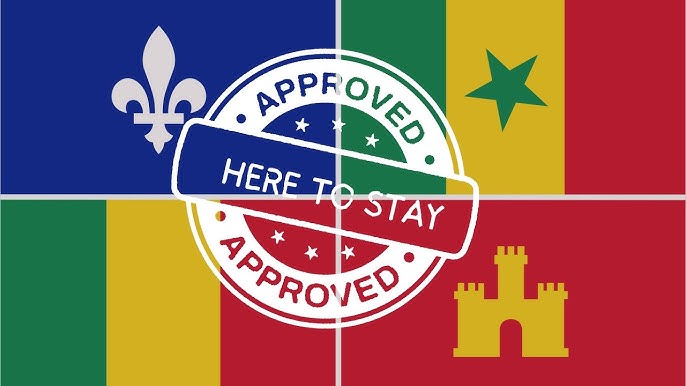(ThyBlackMan.com) The term Black Creole is both a cultural marker and a deeply historical identity that weaves together African ancestry, colonial legacies, European languages, Caribbean rhythms, and Southern American customs. It is not just an ethnic label but an experience—a living, evolving tradition shaped by centuries of migration, conflict, survival, and pride.
Understanding what it means to be a Black Creole person requires going far beyond surface-level definitions. In truth, it is one of the most layered and nuanced identities in the African diaspora. It reflects a people born out of colonial systems, adapted to survival across linguistic and racial boundaries, and still very much alive in today’s American and Caribbean culture.
This article explores the rich and complex history of Black Creole people, particularly in Louisiana and the Caribbean, and reflects on what that identity means in the year 2025.

The Origins: Colonial Foundations of Creole Identity
The word Creole originates from the Portuguese term crioulo, which meant a person born in the colonies. In its earliest form, it had no racial implication; it could refer to Europeans, Africans, or others born in a colony rather than in the European homeland. But as time went on and colonialism dug its roots deeper into the Americas, Creole evolved to represent something much more intricate—especially in racialized societies.
In French, Spanish, and Portuguese colonies, people of African descent born in the New World were often referred to as Creoles to distinguish them from African-born individuals. This separation was significant. A person born into slavery in Africa often had very different linguistic, cultural, and religious knowledge compared to someone born in the colonies, who was more likely to speak the colonizer’s language, understand Catholic customs, and be acculturated into colonial society.
Black Creoles emerged in this context—often as a distinct group from both Africans and European-descended colonists. In many cases, Black Creoles were multilingual, literate, Catholic, and part of a unique cultural mix that included African, French, Spanish, and Caribbean elements. In regions like Saint-Domingue (present-day Haiti), Cuba, Martinique, Guadeloupe, and Louisiana, Black Creole communities began to form with their own identities, music, cuisine, and languages.
Louisiana: The Epicenter of Black Creole Culture in America
Nowhere in the United States is the Creole identity more prominent than in Louisiana, especially in New Orleans and surrounding parishes. The area’s colonial past under French and Spanish rule created a fluid and stratified society where race was important, but more complex than the binary Black-white system found in British colonies.
In antebellum Louisiana, free people of color—many of them Black Creoles—occupied a special social niche. These individuals were often of mixed race, spoke French, practiced Catholicism, and had distinct cultural traditions. Some owned land, ran businesses, and even owned slaves themselves. This doesn’t mean they were equal to whites, but their experiences were markedly different from those of enslaved African Americans in other Southern states.
They developed neighborhoods such as Faubourg Tremé in New Orleans, one of the oldest Black communities in the United States. There, Creole culture thrived. Music, particularly early forms of jazz and zydeco, was an expression of community and cultural pride. Black Creoles were also instrumental in early activism, education, and religious life.
The Language of Creole: More Than Words
Language is perhaps the most enduring element of Black Creole identity. Creole languages are not mere dialects—they are languages in their own right. They originated out of necessity during slavery, when Africans from different tribes and language groups had to find ways to communicate both with each other and their European enslavers.
In Louisiana, Louisiana Creole French developed. It is a blend of French, African languages, Spanish, and Native American terms. While it shares some vocabulary with standard French, it has its own grammar and syntax. Today, it is an endangered language, with most fluent speakers being elderly. Nonetheless, there are modern efforts underway to revive the language through school programs and cultural preservation initiatives.
Haitian Creole, another major Creole language, is far more widely spoken and even holds status as one of Haiti’s two official languages (alongside French). It is spoken by millions of Haitians and in Haitian communities around the world, including New York, Miami, and Montreal.
Even in 2025, these languages matter. They serve as a direct link to heritage, helping young Black Creoles connect with their ancestors and cultural roots.
Cultural Markers: Food, Faith, and Festivals
The richness of Black Creole life is often experienced through food, religion, and celebration. Creole cuisine is one of the most influential and recognizable cultural legacies in the United States and the Caribbean.
In Louisiana, dishes like gumbo, jambalaya, dirty rice, and crawfish étouffée are more than meals—they are stories on a plate. These dishes are a reflection of African, French, Spanish, and Native American culinary traditions. They feature the layering of spices, the use of the holy trinity (onion, bell pepper, and celery), and cooking techniques passed down through generations.
Religion also plays a defining role in the Black Creole experience. Most Black Creoles are traditionally Catholic, but their Catholicism often blends with African spiritual practices. In Haiti, for instance, vodou is practiced alongside Catholicism. In Louisiana, African-rooted spiritual practices are embedded in everyday life, sometimes hidden beneath Catholic rituals.
Creole festivals, including Mardi Gras in New Orleans and Carnival in the Caribbean, are important cultural expressions. For Black Creoles, these events are not just about revelry—they are moments of cultural pride, resistance, and continuity.
Complex Identities: Color, Class, and Community
Historically, Black Creoles have navigated complicated relationships with whiteness and Blackness in America. In 19th-century Louisiana, for example, the legal system often classified people based on fractions of African ancestry. Some Creoles of color, especially those with lighter complexions or wealth, sought to differentiate themselves from enslaved or darker-skinned Blacks.
This reality has caused tensions over the years, both within Black communities and in broader society. Some viewed Creoles as elitist or separatist. Others saw them as a bridge between communities, uniquely positioned to challenge racial hierarchies.
Today, most Black Creoles proudly affirm their Black identity while also celebrating their cultural distinctiveness. For many, being Creole is a way to say: “I am Black—but I am also part of something culturally rich and historically unique.” The modern Black Creole person understands identity as layered rather than singular.
Black Creoles in 2025: A Revival of Cultural Pride
Fast forward to 2025, and the meaning of being a Black Creole is evolving—yet deeply rooted in history. In a time of increasing interest in ancestry, cultural reclamation, and digital archiving, younger generations are reconnecting with their Creole roots in powerful ways.
Genealogy websites have made it easier to trace family lines back to Louisiana, Haiti, Martinique, and other Creole centers. DNA testing has sparked curiosity about ethnic and cultural heritage. Cultural centers like the Louisiana Creole Research Association (LaCRA) and Creole Heritage Day celebrations are gaining popularity.
In cities like Houston, Atlanta, and Los Angeles, new generations of Black Creoles are using social media to preserve language, promote recipes, share oral histories, and even teach Creole French and Kreyòl through YouTube and TikTok.
Musicians are blending Creole sounds with hip hop, gospel, and R&B. Writers are exploring Creole themes in poetry and fiction. Activists are advocating for more inclusion of Creole history in school curricula.
The Creole identity is no longer relegated to the past—it is being redefined with pride and urgency in the present.
Preservation Amid Erasure
Despite the revival, Black Creole culture faces ongoing threats—primarily from cultural erasure, gentrification, and generational disconnect. In Louisiana, once-thriving Creole-speaking communities have seen a sharp decline due to migration, assimilation, and the dominance of English.
Historic neighborhoods like Tremé face displacement due to urban development. Traditional Creole music struggles for mainstream visibility in a digital music era. Some young Creoles no longer speak the language or know their ancestral dishes.
This has spurred cultural preservation movements. There’s a growing demand for dual-language education in Creole communities, more government support for cultural institutions, and better representation in media and textbooks.
In 2025, preserving Creole identity is as much a political act as it is a cultural one. It’s about defending history, refusing erasure, and making sure future generations know who they are and where they come from.
Final Thoughts: A Living Tapestry
A Black Creole person is not defined by one trait or origin, but by a cultural inheritance that is resilient, fluid, and proudly complex. Whether they trace their lineage to Louisiana, Haiti, Martinique, or other French- or Spanish-speaking regions, Black Creoles stand as evidence of the diaspora’s adaptability and creativity.
To be a Black Creole in 2025 is to be part of a mosaic of language, food, religion, struggle, and joy. It means honoring ancestors while making new traditions. It’s not a fading identity—it’s a living one, proudly spoken in every bowl of gumbo served, every drumbeat of zydeco played, and every prayer whispered in both French and African tongues.
Creole identity is a powerful reminder that in every corner of the diaspora, Black culture is never monolithic—it’s layered, rhythmic, and unbreakably rich.
Staff Writer; Beauregard “Ace” Lafleur
You can reach this proud Creole at BeauAL@ThyBlackMan.com.

















Leave a Reply